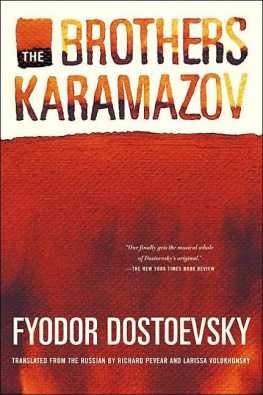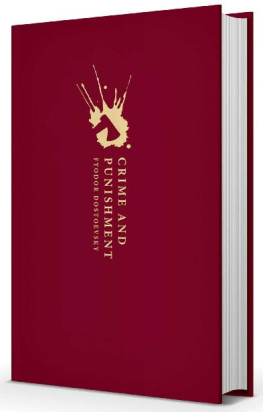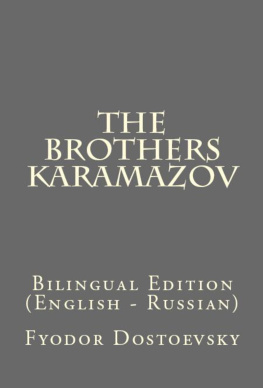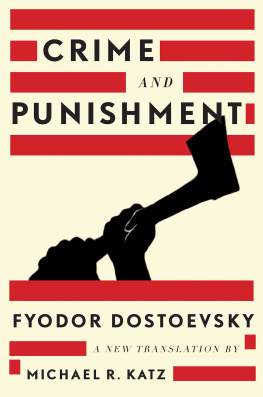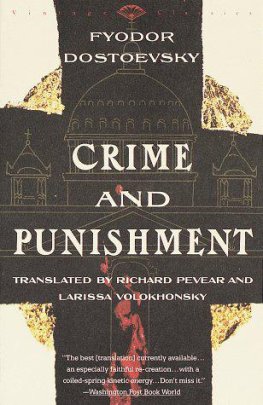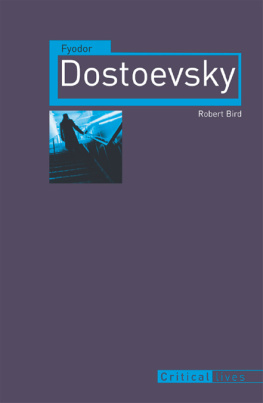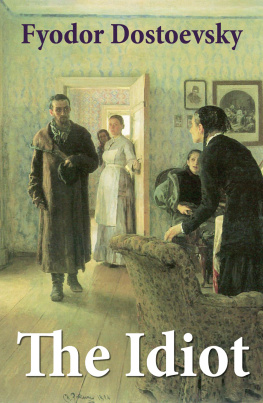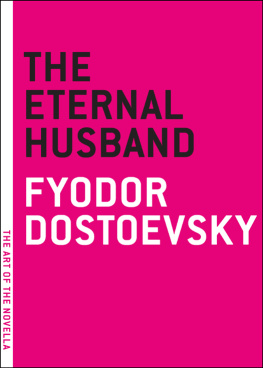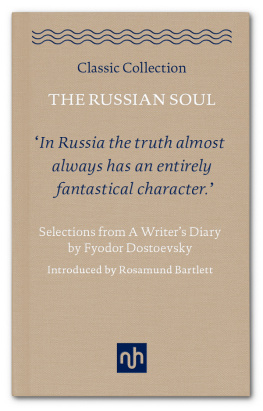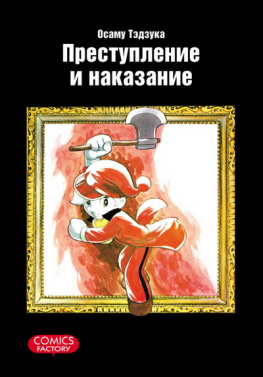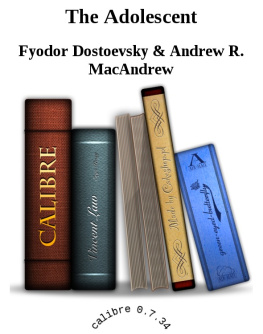Table of Contents
Demons
FYODOR DOSTOEVSKY
Translated from the Russian by Richard Pevear and Larissa Volokhonsky, with an Introduction by Joseph Frank.
This translation first included in Everyman's Library, 2000
Richard Pevear and Larissa Volokhonsky, 1994
Introduction Joseph Frank, 2000
ISBN: 0375411224
Introduction
Dostoevsky's Demons, probably the greatest novel ever inspired by a revolutionary conspiracy, was not the book that its author had intended to write. The story of how it came into being in its present form is rather a complicated one, involving Dostoevsky's own literary ambitions, the fact that he was living abroad, and the appearance in the Russian and German newspapers, which he read assiduously every day, of stories about an atrocious crime committed in his homeland by a small cell of revolutionaries.
At the time this news appeared, Dostoevsky had been dreaming of writing another type of novel entirely, one that would center on the loss of religious faith and its recovery; but he felt that he could not create such a work before returning to Russia from his European exile. The cause of his prolonged, four-year sojourn in Europe was not, as in the case of Turgenev, a preference for the amenities of European culture, but simply a need to escape from creditors who, on his return, might have thrown him into debtors' prison. The debts involved, incidentally, had not accumulated because of his own imprudence, as is too often assumed, but were those of a failed commercial venture of his deceased older brother, whose obligations he had voluntarily assumed. Dostoevsky's first idea for what became Demons was thus to knock off rapidly what he called a political 'pamphlet', in which he could express all his by now bitter hatred of the radicals and their ideology. It might also, at the same time, bring in sufficient income to enable him to return to Russia, where he would settle down to write the great work that he regarded as the culmination of his literary career. But things did not work out that way.
Dostoevsky was living in Dresden, plagued by financial worries and undecided about what to undertake next. He had recently finished The Idiot, in which he had tried to depict 'an absolutely beautiful man' (Prince Myshkin), who wished to live in the real world and, at the same time, to incorporate the highest Christian virtue of totally selfless love; but this novel had not met with the same success as Crime and Punishment, nor was he by any means satisfied with it himself. In a letter to the critic N. N. Strakhov, defending what he called his 'fantastic realism' ('what the majority calls almost fantastic and exceptional for me sometimes constitutes the very essence of the real'), he nevertheless admitted that 'much in the novel [The Idiot] was written hastily, much is dragged out and does not come off, but something still does come off. I do not stand by my novel but by my idea.
This 'idea', in its broadest sense, was to create a positive artistic image to counter the influence of the ideology of Russian radicalism in the 1860s. The intellectual leaders of this movement - N. G. Chernyshevsky, N. Dobrolyubov, D. Pisarev - are little known except to students of Russian culture, but they exercised an enormous influence and determined the literary-cultural ambiance in which Dostoevsky was writing. These critics and publicists (though Chernyshevsky also wrote a famous and influential novel, What Is To Be Done?) were not only atheists who rejected God and the divinity of Christ, but they also attempted to substitute for the Christian morality of love and self-sacrifice one based on a purely homebrewed Russian amalgam of Benthamite Utilitarianism and Utopian Socialist idealism (labelled 'rational egoism'). Dostoevsky's great aim was not only to reveal the disastrous human consequences to which such an ideology might lead (as he had done with both the underground man and, more explicitly, Raskolnikov in Crime and Punishment), but also to rehabilitate the Christian ideal against all its gainsayers. It is thus not surprising that, even before completing the fourth and last part of The Idiot, he should have thought of another embodiment of the same thematic ambition.
In December 1868, writing to his oldest friend, the poet Apollon Maikov, Dostoevsky confides his plan for 'a huge novel whose title would be Atheism', asking his friend to keep the idea secret ('for God's sake, let this remain between us'). The passage is too lengthy to quote entire, but it involves a main character who loses his religious faith, and then embarks on a quest to find a substitute ideal. He goes off in search of this alternate faith among a large variety of competing groups: 'the atheists, the Slavs and Europeans [i.e., the Slavophils and Westernizers], the Russian fanatics, anchorites, the priests'; he even flirts with Polish Jesuits, but 'slips away from them to the depths of the flagellants [Russian sectarians] - and in the end finds Christ and the Russian God'. The importance of this project for Dostoevsky could not be more forcefully expressed: 'Let me write this final novel,' he declares, 'and even if I die - I will have spoken out about everything.'
It was to take another year, however, before Dostoevsky could get around even to making notes for this project. Instead, to obtain some much needed funds (his wife had just given birth to a daughter), he wrote The Eternal Husband with great reluctance, although his expressed aversion to doing so did not prevent him from turning out a small masterpiece, the most classically perfect of all his shorter works. But it was only in December 1869 that he could think of his Atheism novel again, which by this time had turned into a much larger idea for a work in several volumes to be called The Life of a Great Sinner. Never written as such, this projected series furnished material for Demons, as well as for Dostoevsky's two last novels, A Raw Youth and The Brothers Karamazov.
His ideas for The Life of a Great Sinner were sketched in his notebooks between December 1869 and January 1870, and Dostoevsky told Apollon Maikov in the first week of December that he would be sitting down to begin writing 'in three days'. But just a month later, he excitedly reported to Maikov that he had been inspired by a new theme. 'I have tackled a rich idea,' he tells him enthusiastically. 'I am not speaking of the execution but of the idea. One of the ideas that has an undoubted resonance among the public. Like Crime and Punishment but even closer to reality, more vital, and having direct relevance for the most important contemporary issue.' Dostoevsky was certain that he would be able to finish this novel by the fall of 1870, and that, since its topicality might have the same financial success as Crime and Punishment, 'there is hope of putting all my affairs in order and of returning to Russia ... Never have I worked with such enjoyment and such ease.'
This is the first reference to Demons in Dostoevsky's correspondence, and we can see the novel beginning to take shape in his notebooks while, at the same time, he continued to add material to his 'great sinner' corpus (some notes are dated from as late as March 1870). But what was the idea that had so gripped Dostoevsky, and which had 'direct relevance to the most important contemporary issue'? It was the murder, committed during November 1869, of a young student at the Petrovsky Agricultural Academy in Moscow by a revolutionary group headed by Sergei Nechaev; and one can see why Dostoevsky thought that his proposed idea was 'even closer to reality' than Crime and Punishment. In that novel, he had invented a crime inspired by the supposedly humanitarian aims of radical ideology, but now 'reality' had finally caught up with what he had foreseen would be the results of 'rational egoism' in practice.
News about the crime began to appear in the Russian and foreign press about a month after it was committed, and while it certainly would have attracted Dostoevsky's notice in any case, the name and activities of Nechaev had come to his attention even earlier. It so happened that Dostoevsky's young brother-in-law, Ivan Snitkin, was a student in this very Academy and had been visiting with the Dostoevskys in the fall of 1869. Dostoevsky's wife, Anna Grigoryevna, thus attributed the origin of the novel to Dostoevsky's conversations with her young brother; but this exhibition of pardonable family pride is highly exaggerated. At most, Ivan Snitkin may have spoken to Dostoevsky about Nechaev's organizing activites at his school before the murder actually took place, but he could have known nothing else; nor is there any evidence in Dostoevsky's notes that he thought of a novel involving a political murder before the story broke in the newspapers. Indeed, Dostoevsky himself affirmed, in a letter to his editor Mikhail Katkov a year later, that 'I know nothing at all about Nechaev, nor Ivanov [the victim], nor the circumstances of the murder, except from the newspapers.'
Next page

